Jamie Hardesty is the nicest, most impatient man I have ever met.
Jamie is almost relentlessly positive, and completely sick of waiting around for things to change.
Jamie is resolved not to waste a second of his time, meaning he will not go to the pub with you unless he really wants to.
We are in the pub with Jamie. And now you are too.
The venue for this interview was Jamie's choice - I asked him to pick somewhere significant to him and he instantly chose the Brandling Villa.
“I see the Brandling Villa as my second home, or my spiritual home,” he begins.
"When I worked as a journalist at Bdaily," he explains, "the Head Office was up the road. It had a lot of ambitious, intelligent, bohemian young people working there and lunchtimes or after work - we would come here and it was fun. It's the first time I'd ever really met people professionally that were my kind of people."
"There’s barely been a week since 2013 when I haven’t been in this pub,” Jamie continues, “I like the music. I like the staff. I like the food. I like how relaxed it makes me feel. When I was in hospital, I actually really missed it. I missed the comfort of it. They sent me in cans of beer, because they knew I was suffering.”
Just over a year ago, Jamie and his wife Sammy were on holiday in North Wales, when Jamie - to use his way of describing it - fell off a mountain. He's written, movingly and compellingly, about it here.
“I came back with a bit of a renewed sense of vigour and energy.
I don't want to waste my fucking time.
I really don’t.”
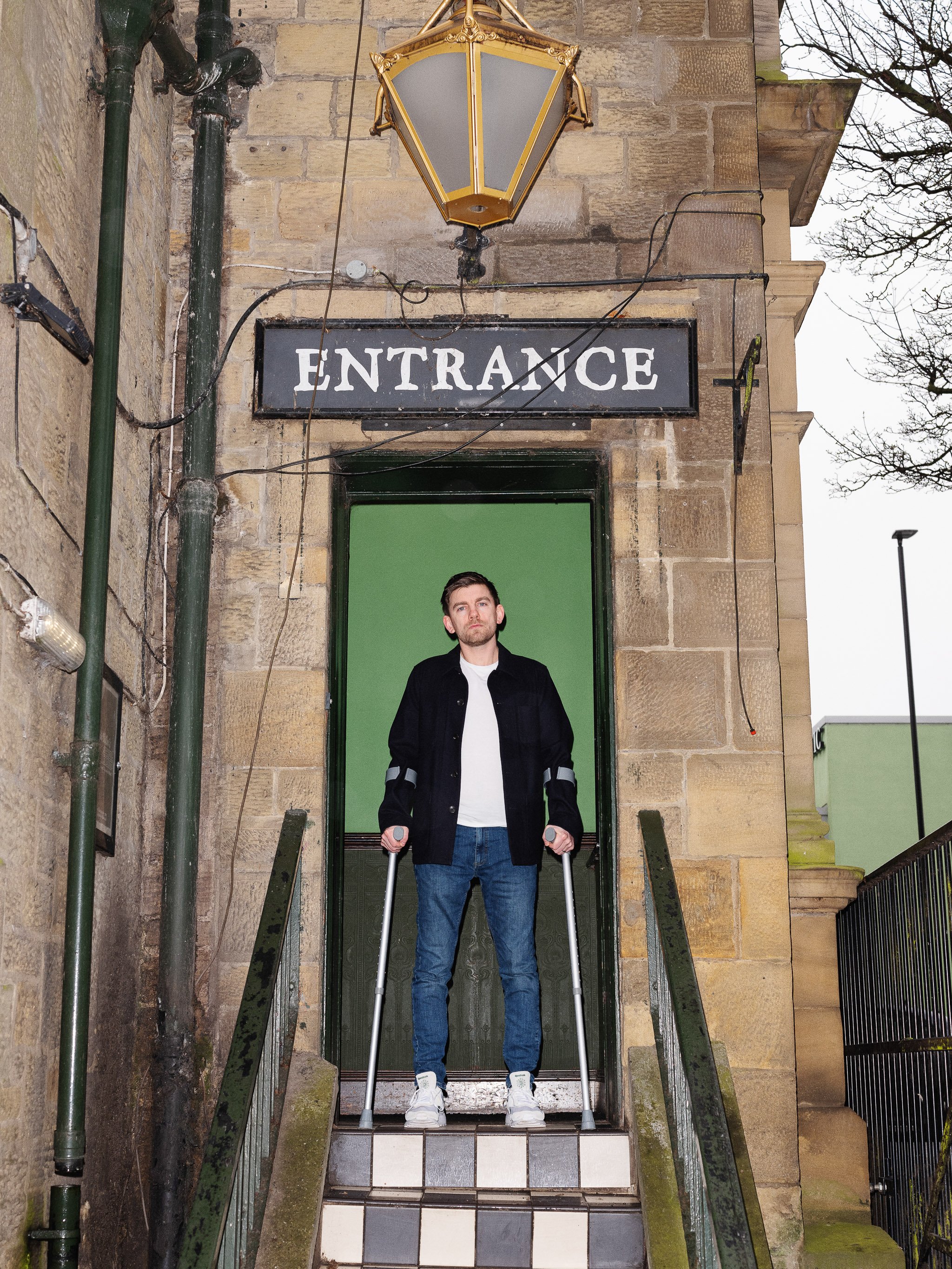
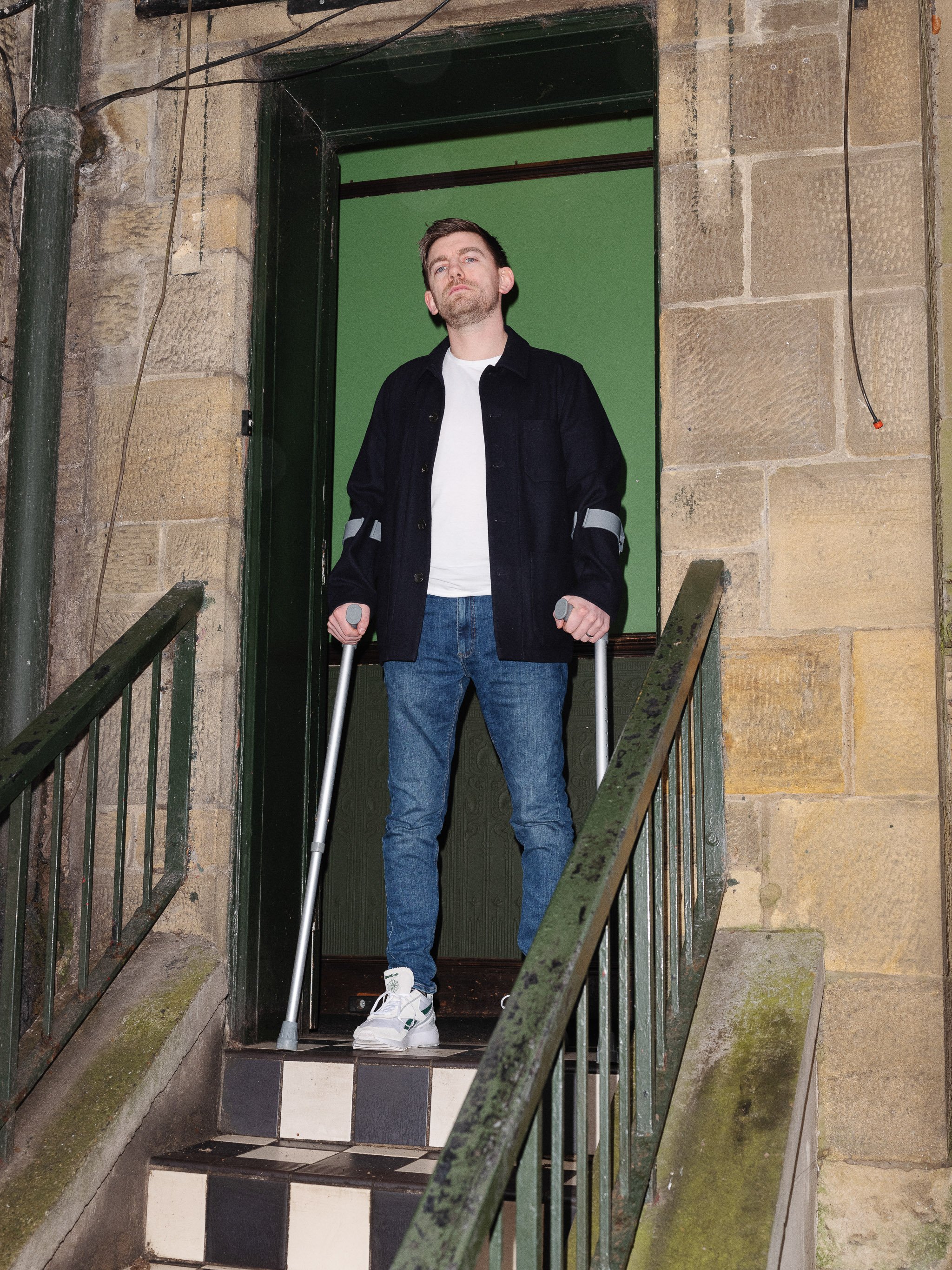
As he continues to recover from the accident, one thing that’s changed is his relationship with his work as a champion of the North East tech sector.
"I was dealing with suffering and worry, and confusion and depression, and I wasn't in a good place,” he says frankly, “So, a lot of people would quite rightly think, 'Okay, well, it's not about work anymore, right?' It's about getting healthier again, or it's about getting used to coming back into society again, or it's about just feeling okay again, and actually work doesn't matter. For me, that isn't the case.”
"When I was in hospital,” Jamie continues, “and I was looking at the same walls and traversing the same corridors every day, and you're seeing people who are quite literally, just mentally given up and are spending pretty much 24 hours a day in bed - I knew I needed to get out of there.”
As Jamie is talking, sat in a high-backed chair tucked in the corner of the pub, you can see in his eyes as his mind flicks between those walls he couldn’t wait to get away from, and these ones he couldn’t wait to get back to.
The difference, of course, isn’t in the place as such, it’s in the reclaimed autonomy of a young man who had always been fit, active and engaged with a world where doors would open for him.
As we talk, he acknowledges that the accident was the first thing that had properly gone wrong in his life.
That seems to have had two sides to it - a big mindset shift to deal with major adversity for the first time, but also a determination not to let it take him too far off course.
If tech’s future is autonomous, then Jamie’s is self-governed.
The fact he was able to walk down the hill (passing our Uber, stationary in traffic), up the steps into the pub and over to the table, makes the Brandling Villa symbolic of that.
The past few months have seen Jamie reclaiming self-governing state, and refinding his purpose.
"I broke 90% of my rib cage,” he explains, “I broke my chest. I broke my back in three places. I lost sensation and mobility below my hips. But I was working again within three months, which sounds absolutely ridiculous. It wasn't because I was desperate to get back and write about tech companies in the region. It was because I needed purpose, and in the hospital I was just existing, not living.”
What does that purpose look like in practice?
"I want to do something that matters,” he says. “I want to do something that instigates and evokes change in people. I want to do something that helps people, I don't want to push buttons on a keyboard and watch the clock 9-5, Monday to Friday. I want to do something where I think if I wasn't there, it would suffer as a result. I came back with a bit of a renewed sense of vigour and energy. I don't want to waste my fucking time. I really don’t."
He's not wasted any time getting back on his feet. In the last few months, Jamie has progressed from mostly using a wheelchair to get around, to walking short distances with crutches, to recently walking the Town Moor Park Run.
He has documented his rehab journey with occasional blogs and more regular videos posted on social media - they are invariably met with a flood of well-wishers and an outpouring of love.
None of that is any surprise, because Jamie is one of the most familiar faces in the North East business community, and especially its tech sector, as the author of the weekly Newcastle Tech Digest, and from his time at Bdaily, Tech North and now his role at Sunderland Software City.
He’s seen the region’s tech cluster develop over the last ten years, and has played a part in shaping the narrative around it.
As the conversation moves away from his health and on to his day job, he explains why he feels like there’s never been a better time for start-ups.
“Typically, 10 years ago, the people founding tech businesses would be technologists, tech-first founders,” he explains. “Now, I think the barrier to entry has eroded, so you've got people who are non-technical founders from a whole array of backgrounds and experiences. They’re able to start their own company or bring their ideas to life and there's a lot more to help them realise that."
In Jamie's view, that's tribute to the network of support organisations that's developed around the region’s tech and digital scene - several of which he’s worked for or with over the last decade.
“The North East has ways and means of helping people realise their dreams," he says, "and we've got nice people who are willing to help and go above and beyond.”
Those nice people, that community, is an important asset and in the course of our conversation Jamie mentions a few examples - his Sunderland Software City colleague Ashmita Randhawa, James Hanson at Layers, Kevin Beales at MySalesCoach, and Pete Daykin at WordNerds. All people who are open and contribute readily to the community.
“Pete Daykin is easily one of my favourite people in the region-slash-world,” Jamie says, “we need people like that in the region. We need people who endeavour to try things, fail, iterate, come back, try again, share their knowledge, invest in the community.”
There's a mix of formal and informal networks in the region's tech sector which have helped it develop to this point. But, Jamie is full of frustration when discussing the lack of strategic direction at a North East-wide level.
“It makes me want to bang my head against the wall when I hear people say North East tech just needs to 'shout louder'," he says, "Sure, there’ll be undergrads at universities, or Joe Bloggs on Northumberland Street right now, who don't even know Sage exists. They don't know that we have tech companies and opportunities on the doorstep. But ‘shout louder’ isn't a strategy, yet that mantra seems to have lasted as a substitute for a proper technology strategy.”
“We need proper partnership across public and private sector,” Jamie continues, “and between tech businesses and those who need to digitally transition. Sunderland Software City brings all of those elements together really well and what we do needs to be the norm, not some novel thing.”
“A lot of people would quite rightly think, 'Okay, well, it's not about work anymore, right?' It's about getting healthier again, or it's about getting used to coming back into society again, or it's about just feeling okay again, and actually work doesn't matter. For me, that isn't the case.”
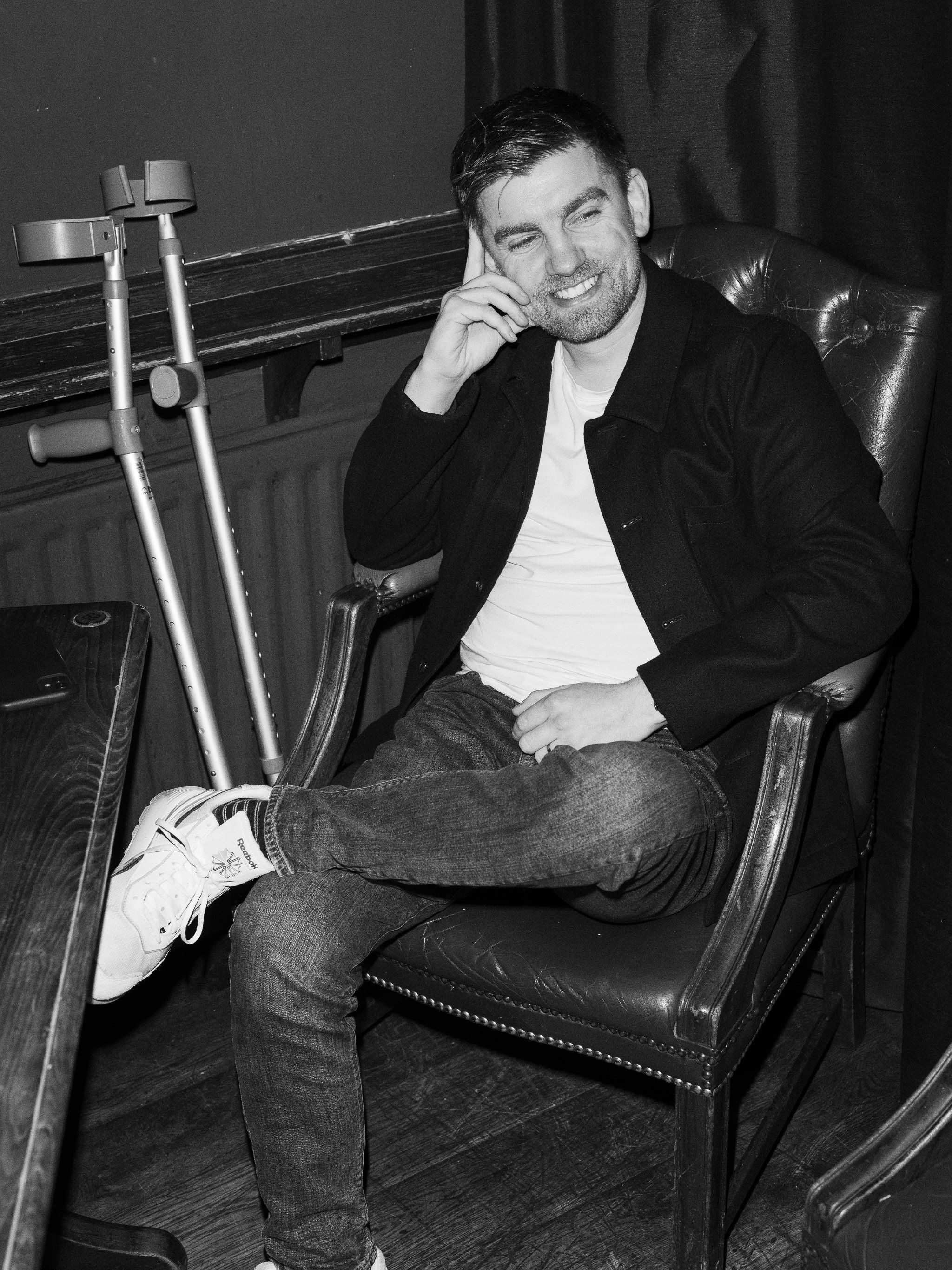
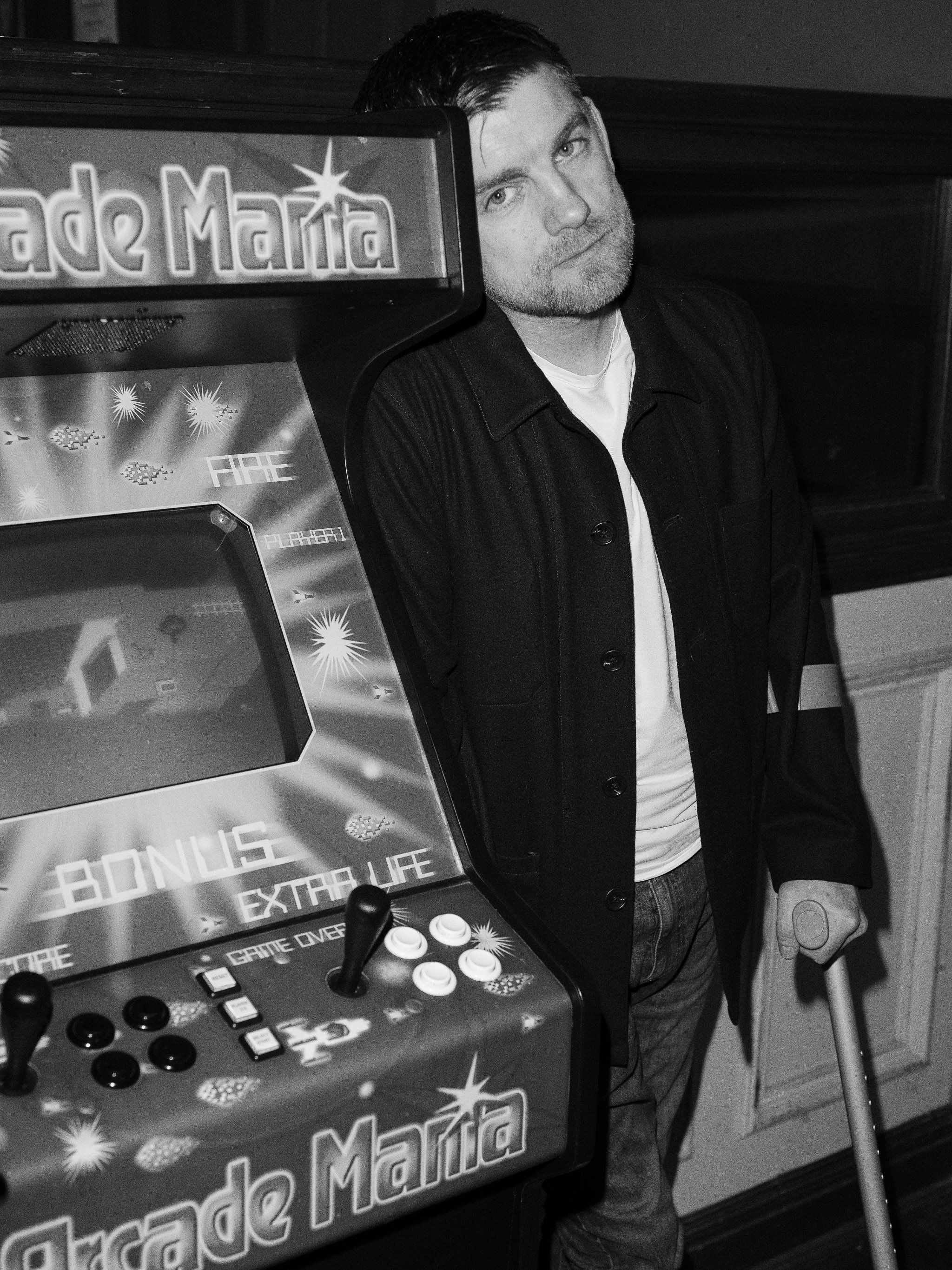
Jamie’s impatience is backed up by the data.
Despite a digital and tech sector Gross Value Added which grew 25% between 2010-2020, the North East still lags behind the rest of the country - the North West, for example, saw 33% growth over the same period.
The North East’s digital sector employment fell by 10% in the face of the pandemic, down to 27,000 from 30,000 - although in 2021 it still sat 47% above 2015 figures, above average of 39% growth for England outside of London, there is still room for more growth.
While not exclusive to digital and tech, the number of business births in the North East is lower per 10,000 population than the English average - 45 per 10,000 people, compared to 62 per 10,000 overall.
A decade is a long time in tech, and Jamie has seen plenty of start-ups come and go, others scale and grow, alongside some big investments and some larger scale exits.
But, as someone born and raised in the region, he looks further back when asked about the mindset of North East entrepreneurialism.
“We live in a post-industrial part of the world that's long been forgotten by government," Jamie begins, "my grandad worked in the merchant navy on the ships and my mum worked in a bank and she worked in a post office. I grew up in a council house. With that backdrop, I think if you're a tech founder, and you've had some investment and then you get to a position where you've got a sustained, healthy, consistent monthly recurring revenue - or perhaps you even get bought out and you get say, an offer of a million pounds for your business - then a lot of people will snap your hand off."
“We don't have the culture or legacy of wealth," he continues, "I’m not saying people in the region aren’t ambitious. I meet a lot of ambitious founders - techies and non-techies - in the region. But, across the North East most people don't have savings. There's an attainment level for the North East that we need to get to and only when we do get there can we raise the aspirational level to proceed further.”
Jamie's clear on what a successful technology strategy for the North East would look like - it would follow the example of Manchester, which took strength in retail and turned it into an eCommerce boom, but focusing on this region's strengths.
“We're a region with a heritage of manufacturing, right?", he explains, "So, we need to look at manufacturing and advanced manufacturing and a cross-pollination with digital technology pioneers. Marry digital with advanced manufacturers, and we've got a strength there. There's emerging technology that we can explore too, but we've absolutely got to understand how the technological revolution can marry up with the manufacturing heritage.”
“It makes me want to bang my head against the wall when I hear people say North East tech just needs to 'shout louder'”
On emerging technology and existing regional strengths, Jamie points to games development, immersive tech, data science and the terrific skills and innovation pipelines from the region's universities.
But he’s wary of the culture around competitive funding pots, which can prevent regional organisations from focusing on their core strengths and instead see them responding to priorities defined elsewhere - often with cliff-edges in funding.
He's wary, too, of a tendency nationally to conflate lower value tech-adjacent jobs and investment with a genuinely booming sector - such as large tech firms moving customer service roles to the North East. The jobs and the investment are welcome, he argues, but they shouldn’t fall into the same category as innovating, high productivity jobs being created.
Understanding the difference, he says, is important to making sure the right solutions are found and the right support is in place to benefit the widest number of people.
“What we should be doing is really unpicking the nuance here," Jamie explains. "How do we cultivate mentorships so people looking for seed investment can pick the brains of people who've had Series A investment? How do we bring social mobility into this? There are people growing up in Byker now who've got a much lower life expectancy than people living around the corner in Jesmond, how can they start to be fast tracked into technology? How can we look at getting people digitally upskilled who may not be privileged or lucky enough to go through college and university? How can we look at all tenets of the tech sector and really bring it closer to the populace?"
This is one of several occasions when Jamie apologises (unnecessarily) for getting on his soapbox. I do my best to actively hand him more soapboxes to stand on, as he's an articulate and thoughtful speaker - especially on tech's role in enabling social mobility.
“We've got to be asking how do we open this up to everyone?," he continues, "How do we ensure that everyone in the region benefits? And that takes strategy. That takes bringing multiple forces together, not working in silos. Not being parochial. Not thinking about regional funding or outputs, but actually thinking about what's going to make me want to keep my kids here in twenty years' time."
“It saddens me that we don't have that," Jamie concludes, "It's not my job to do that; it's all of our jobs to work out how to do that.”
It surely won't be long before someone actually does give him that job, or at least tries to. Whoever they are, they’ll need to make sure the job meets his criteria of not wasting his time, and fits with his mental image of where he’s going next.
“I don't necessarily want to be CEO of Company X," he says, "but I want to be bringing knowledge and drive and passion and ideas to solve problems, and to make people's lives better. The moving the dial forward stuff, making the region stronger, that’s what I’m really passionate about. Equally, I'm really passionate about tech and start-ups, and I've got ideas for start-ups to explore as well.”
Whatever that future looks like, he is well and truly grounded in his desire for purpose-driven work.
“The stuff that gets me out of bed," he says, "is thinking how can I use the knowledge and networks that have acquired over the years, in different roles and wearing different hats, to make sure we're actually moving in the right direction, long term. Because just talking about it or saying that we need to shout louder…it doesn't cut the mustard, it's not enough.”
Can we make sure moving in the right direction is inclusive, with the right values?
“It's something that's genuinely at the forefront of my mind," he says, "Everyone talks about equality, diversity and inclusion - but that's in my bubble of digital and technology. But if you play five-a-side in Newcastle on a midweek, you’re outside of your bubble, the language that you hear, the attitudes, very much do not reflect or resonate with my values.”
Striking a cautiously optimistic note, Jamie adds: “Perhaps a digital working environment can act as a catalyst for society to be even better and more inclusive. I’ve absolutely not got it nailed myself, but I'm certainly trying to be better.”
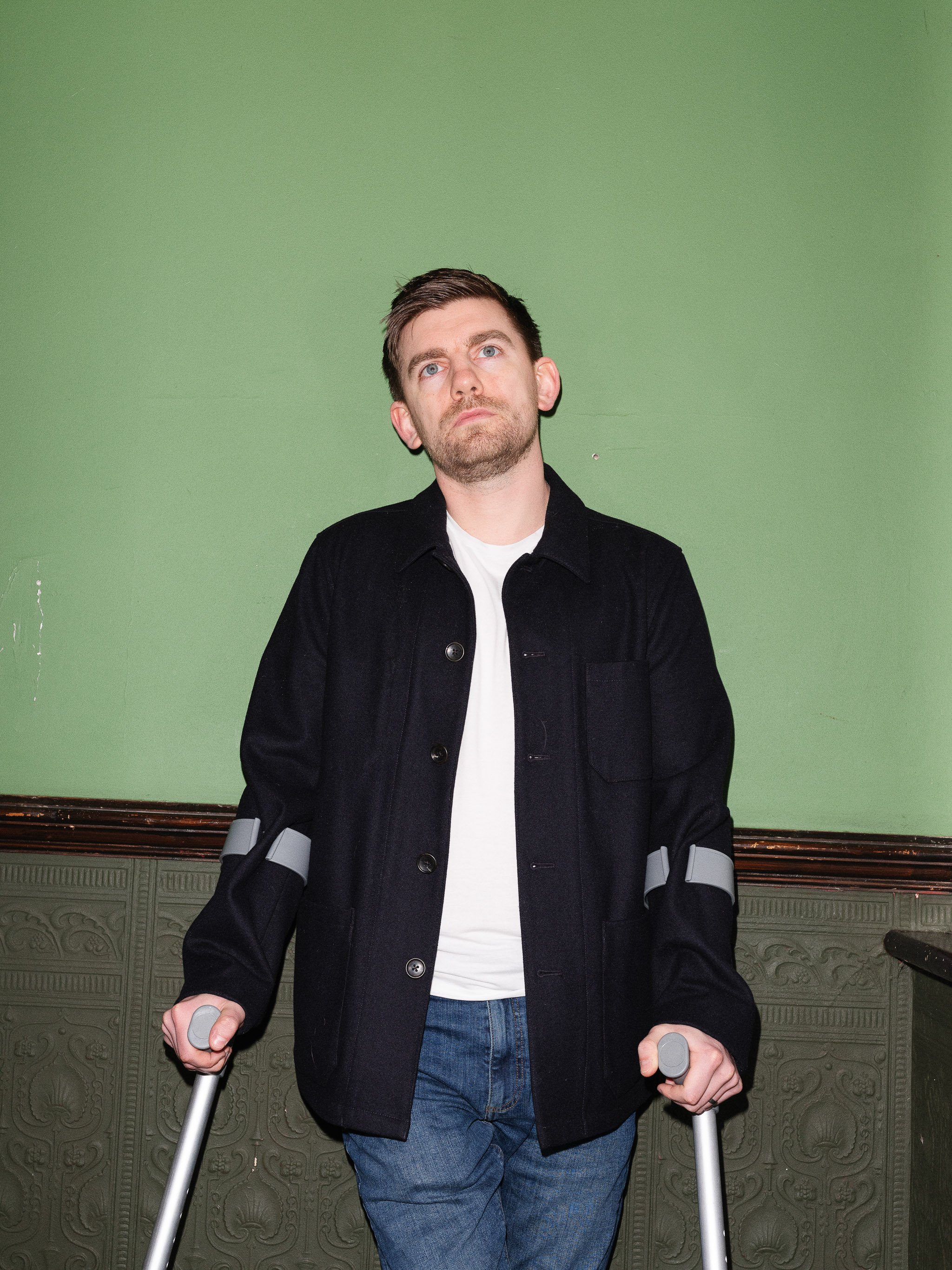

"How do we ensure that everyone in the region benefits? And that takes strategy. That takes bringing multiple forces together, not working in silos. Not being parochial”
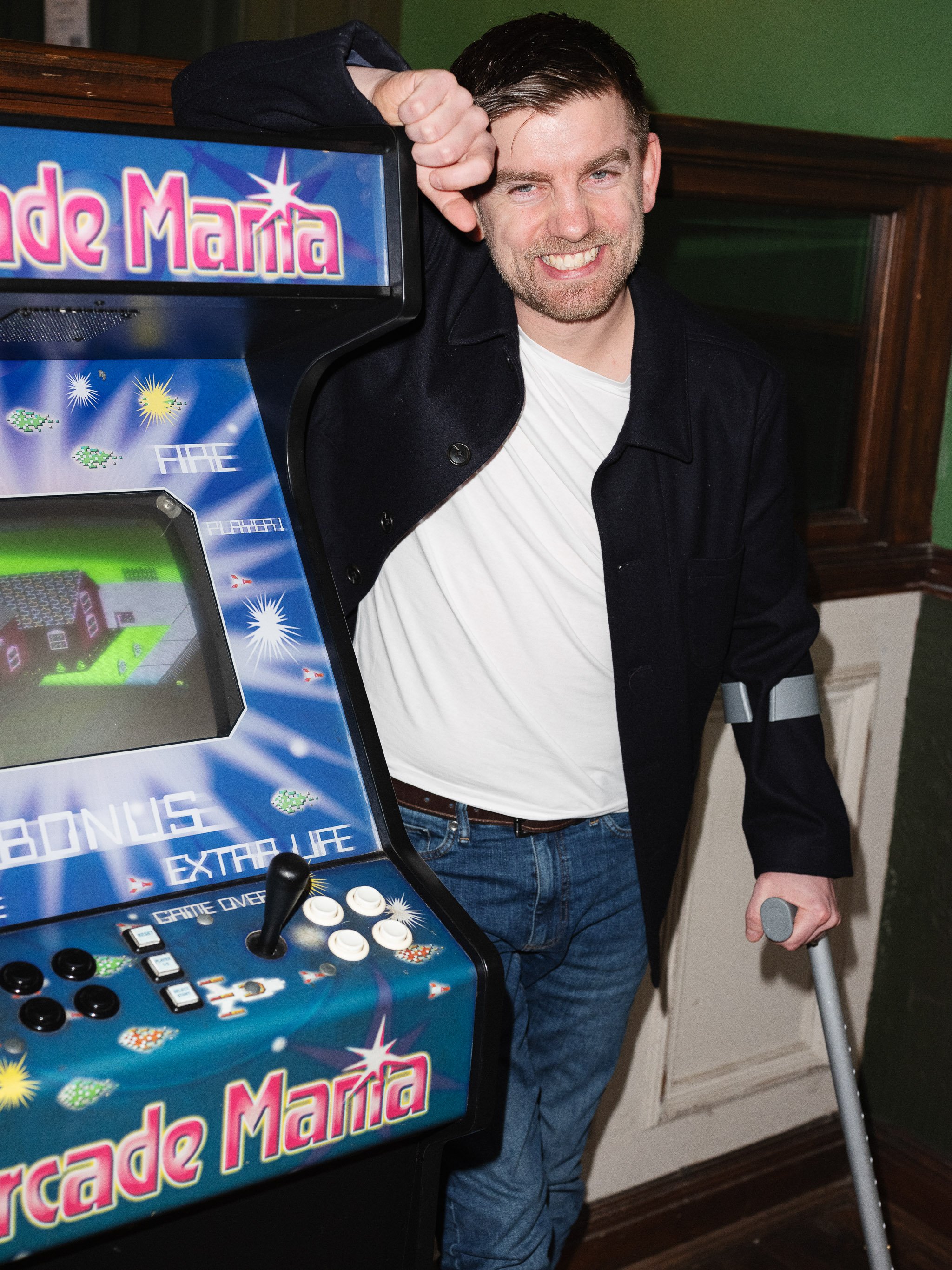
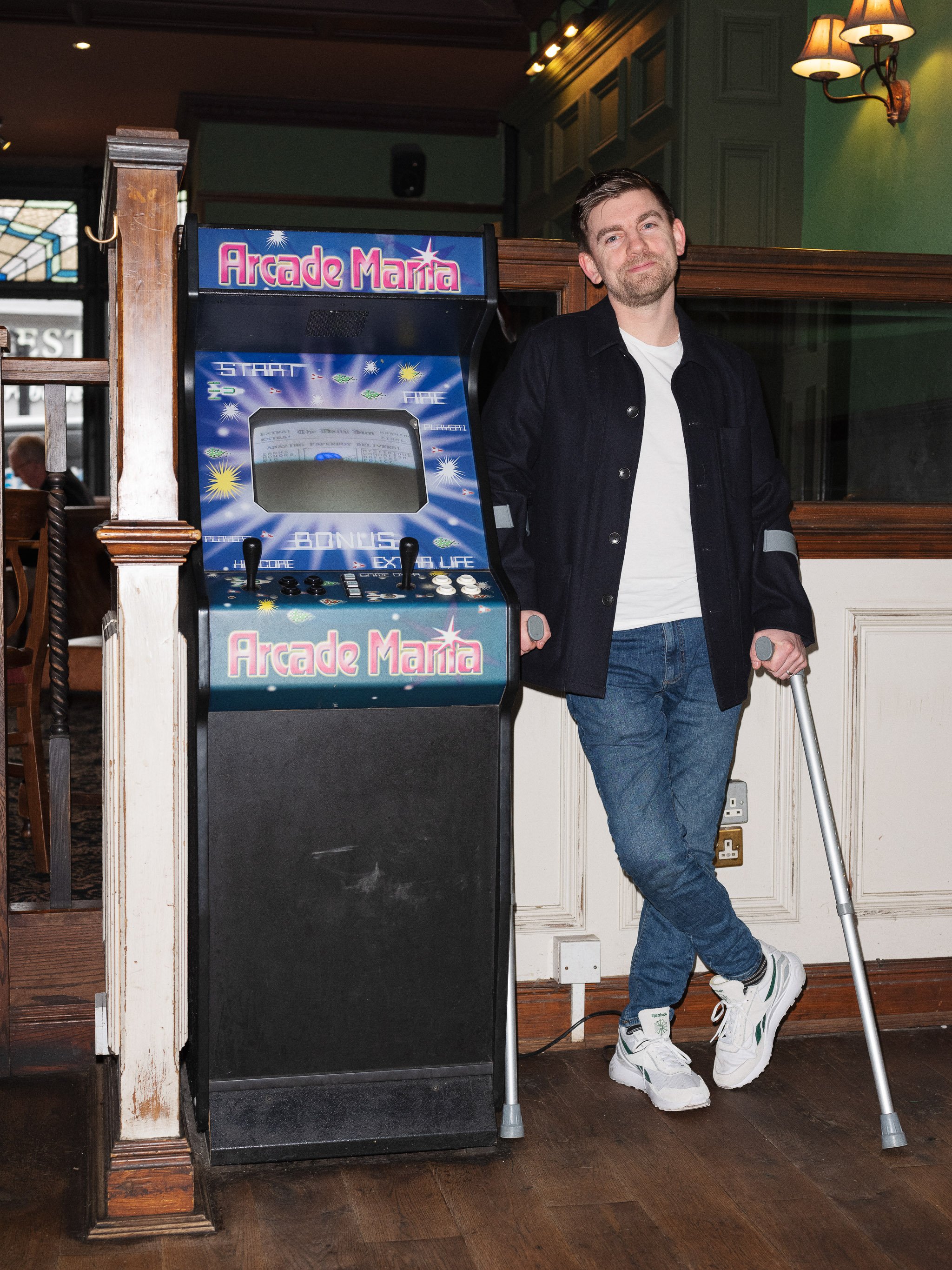
Jamie is something traditionally thought of as a rare thing, a tech evangelical who is people-focused.
Given his descriptions of the North East's tech and digital community, I'm not sure that's as rare as its reputation might suggest, but it's clear that helping people and interacting with them is where Jamie draws much of his energy from.
He gives off that energy too.
He is one of those people who are a complete pleasure to spend an hour (or two, or three) with, and you leave buzzing with ideas and optimism.
Whether he’d think it or not - not, I suspect - if he keeps doing what he’s doing, Jamie Hardesty will be at the centre of the North East’s tech future.
He’s a natural storyteller, connector and shaper of plans.
And if a proper tech sector strategy isn’t forthcoming for the region, you sense he’ll just keep using his own, informal one: don’t waste any fucking time.





